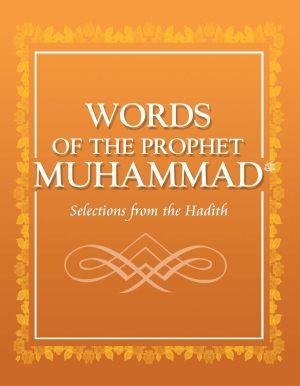The Quran says of the Prophet of Islam: “Surely you have a sublime character.” (The Quran, 68:4) Aisha, the Prophet’s wife, has provided the best commentary on this verse. Her words have been recorded in different books of hadith. Replying to a question on the character of the Prophet, Aisha, referring to this verse of the Quran, said: “His character was the Quran.” (Musnad Ahmad, Hadith no. 24601)
This shows that the most authentic picture of the Prophet of Islam is that which has been expressed in the holy scriptures. There is no doubt that the books of hadith and seerah provide an authentic source of information about the life of the Prophet. However, the Quran remains the primary source. Therefore, the picture of the Prophet, which tallies with the relevant statements made therein, must be regarded as correct. Therefore, here I propose to enlarge upon studying his life in the light of certain Quranic verses.
The Quran describes the Prophet of Islam as a human being like any other. What distinguished him from others was not his being something other than human but, instead, his being a prophet and a human being. The following verses from the Quran illustrate this:
‘Holy is my Lord. I am but a human being sent as a messenger.’ (17:93)
‘I am only a human being like yourselves. It is revealed to me that your God is One God.’ (18:110)
Their messengers replied, ‘We are indeed mortals like yourselves.’ (14: 11)
The life of Prophet Muhammad is the best model for mankind to follow.
Featured Articles
Featured Videos
FAQs
In the Quran the Prophet Muhammad is described as being of “sublime character.” (68:4) Here are two sayings of the Prophet, which throw light on what this “sublime character” consists of:
Never debase your character by saying that if people treat you well, you will treat them well, and if they harm you, then you will do worse to them. Rather, become accustomed to being good to those who are good to you, and not wronging those who harm you. (Sunan Al Tirmidhi, Hadith No. 2007)
Join hands with those who break away from you, forgive those who wrong you, and be good to those who harm you. (Musnad Ahmad, Hadith No. 7725)
The sublime character described here was displayed in its noblest form by the Prophet himself Such character is required of ordinary Muslims as an accessory, but with the Prophet it was a basic requisite.
There are two levels of character, an ordinary and a superior level. An ordinary character is based on the principle: do as you have been done by. Such a character might be termed a “knee-jerk character,” for those possessed of such a character offer only reflex responses to treatment by others, breaking with those who break with them, wronging those who wrong them, and harming those who harm them.
But the higher level of character is based on the principle: do as you would be done by. Those possessed of such a character deal with both friend and foe in the same principled manner, irrespective of how they have been treated. They are reconciliatory, even joining with those who break with them. They are compassionate, even to those who seek to harm them. They are forbearing, even towards those who wrong them.
According to the French philosopher, Voltaire (1694–1778), “No one is a hero to his valet.” The reason for this is that a valet has access to a person’s private life, and in private life no one is perfect. Those close to a person usually do not hold him in such high esteem as those who are further off. That is why they cannot come to think of him as a hero. But this does not hold true for the Prophet Muhammad. History shows that the closer one came to him, the more one was impressed by his fine qualities.
Source: Life of Prophet Muhammad
Prophet Muhammad always considered himself accountable to God Almighty. We learn from a tradition that once when the Prophet of Islam was at home with his wife Umm Salmah, he sent her maidservant on an errand of some urgency. She took some time to come back. So Umm Salmah went to the window and saw that the maid was watching some children playing a game in the street. When she eventually came back, signs of anger appeared on the Prophet’s face. At that time the Prophet had a miswak (a small twig used as a toothbrush) in his hand.
“If it wasn’t for the fear of retribution on the Day of Judgement, I would have hit you with this miswak,” said the Prophet to the maid. (Al-Adab al-Mufrad, Hadith No. 184)
The Prophet of Islam warned the people of the chastisement of Doomsday. This incident shows that this warning was not just meant for others. He too always went in fear of it. He wanted people to live in this world in such a way that the fear of God’s chastisement should be embedded in their hearts. The same applied to the Prophet himself. The impending Doomsday was a matter of grave concern to everyone including himself. His prophethood did not in any sense exempt him from accountability in the life Hereafter.
The Prophet of Islam, Muhammad ibn Abdullah, was born in Arabia on 22 April 570 AD, and died on 8 June 632 AD. He grew up orphaned and his childhood gave indications of the sublime and dynamic personality that was to emerge. As he grew up, the nobility of his personality, soft-spoken and genial disposition made him a benevolent member of society. A balanced personality—tolerant, truthful, perspicacious, and magnanimous—he presented the highest example of human nobility. According to Daud ibn Husayn, he became known as the most chivalrous among his people, tolerant and forbearing, truthful and trustworthy, and always an epitome of good behaviour. He would stay aloof from all quarrels and quibbles and never indulged in foul utterances, abuse or invective. People even left their valuables in his custody, for they knew that he would never betray them. His unimpeachable trustworthiness won for him the title of al-Amin, an unfailing trustee, and of al-Sadiq, the truthful.
The Prophet of Islam discovered Truth in the fortieth year of his arduous life. If was an attainment that was not to usher in ease and comfort, for this Truth was that he stood face to face with an Almighty God. It was discovery of his own helplessness before the might of God, of his own nothingness before the supernatural magnitude of the almighty. With this discovery it became clear that God’s faithful servant had nothing but responsibilities in this world; he had no rights.
The meaning that life took on for the Prophet after the Truth came to him can be ascertained from these words:
Nine things the Lord has commanded me. Fear of God in private and in public; Justness, whether in anger or in calmness; Moderation in both poverty and affluence; That I should join hands with those who break away from me; and give to those who deprive me; and forgive those who wrong me; and that my silence should be meditation; and my words remembrance of God; and my vision keen observation. (Jami ul-Usool, Hadith No. 9317)
These were no just glib words; they were a reflection of the Prophet’s very life. Poignant and wondrously effective words of this nature could not emanate from an empty soul; they themselves indicate the status of the speaker; they are an outpouring of his inner being, an unquenchable spirit revealed in verbal form.
Source: Life of Prophet Muhammad












